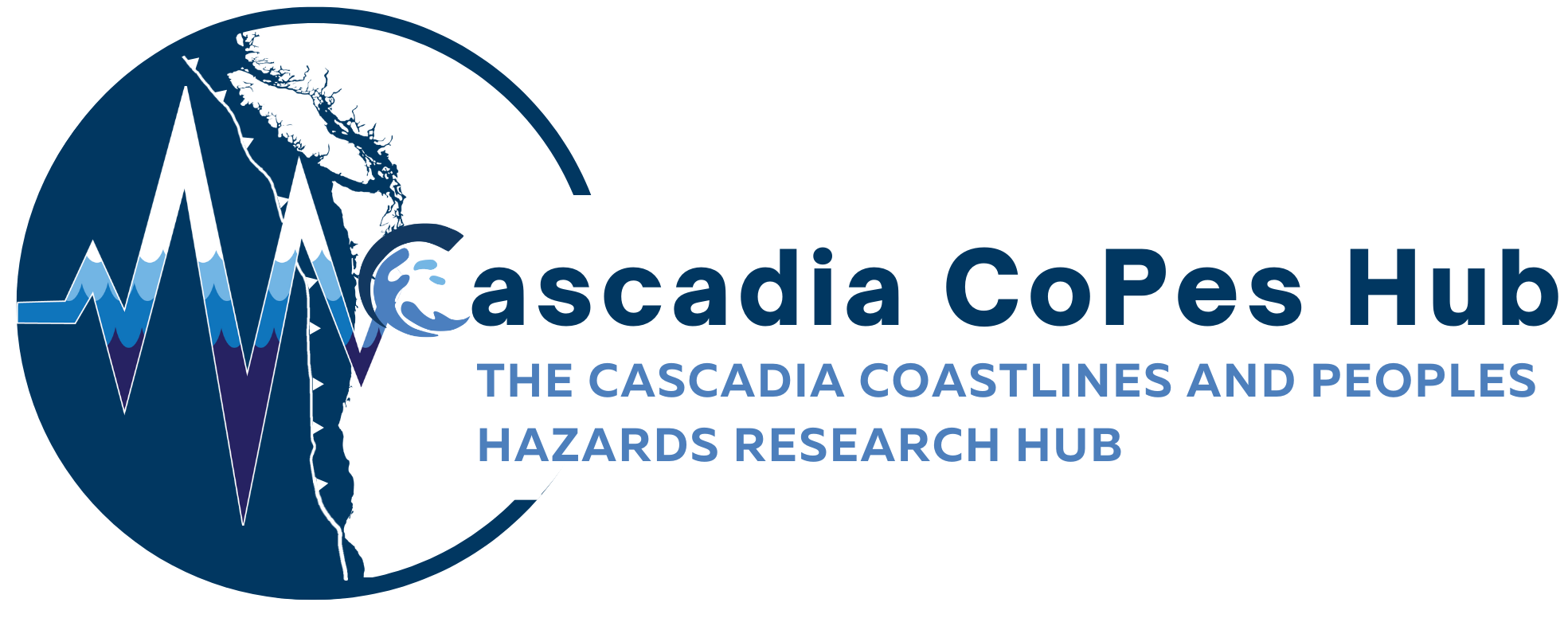The Cascadia Coastal Hazards Research Coordination Network (abbreviated to RCN) brings together researchers, practitioners, and stakeholders who seek to mitigate the geohazards on coastal communities in the Pacific Northwest. The goal of the RCN is to co-develop research agendas and establish new collaborations that cross disciplinary and institutional boundaries. The RCN is funded by a 3-year grant from NSF as part of their Coastlines and People program (NSF Award Number 1940034).
The RCN directly helped to start up the Cascadia CoPes Hub and also supports another hazards project, CoPe EAGER, which develops and evaluates new public communication tools for coastal resilience through the use of geo-narratives. The team leverages scientific advances in localized modeling of hazardous geo-environmental processes and local community history to produce interactive, science-and-data-rich narratives through multimedia storytelling, story-mapping, and 3D visualizations.

Highlights
Improving Healthcare Access in Disasters Listening Session
The RCN with support from the Cascadia CoPes Hub conducted a Virtual Forum on Research and Information Needs to Improve Healthcare Access in Disasters on March 2. The goal of the workshop was to improve our capacity to conduct time-sensitive public health research in the aftermath of a disaster. This pre-virtual workshop was followed up by an in-person event called DR2.
Disaster Research Response Workshop
Cascadia CoPes Hub members participated in and contributed to the Disaster Research Response (DR2) meeting held at the University of Washington August 9-11, 2022. Cascadia CoPes Hub-Cascadia Hazards Research RCN-sponsored virtual community listening sessions on accessing healthcare in disasters provided key inputs for the meeting. Nicole led the charge in writing up the DR2 workshop effort as a poster that she is presenting this month in Greece at the International Society of Environmental Epidemiology and International Society for Exposure Science annual meetings.
Background and Aim: Environmental health research in the aftermath of disaster is necessary to learn about short- and long-term health consequences, as well as response and recovery strategy effectiveness. However, several relational, logistical and administrative barriers facing disaster research necessitate intentional and collaborative planning among researchers, practitioners, funding agencies, and communities. In response, the University of Washington (UW) and the National Institute of Environmental Health Sciences (NIEHS) co-designed a “Disaster Research Response” (DR2) workshop to improve preparedness to conduct rapid environmental and health-related research that concurrently advances science and is responsive to community information needs. This presentation provides an overview of the DR2 workshop planning process and resultant tools, resources, and lessons learned.
Methods: Over 50 NIEHS staff, UW faculty, students, and staff from environmental and occupational health, nursing, medicine, policy, planning, and engineering, and public health, healthcare and emergency management practitioners worked together for 2.5 years to build relationships, engage community members to identify research priorities, including through listening sessions and co-development of research protocols/plans, plan for ethical review of time sensitive research, and identify workforce development needs.
Results: The workshop resulted in the development of several sharable tools and resources, including a Concept of Operations Plan; protocols for and highlights of community listening sessions, approaches to engaging communities in pre-disaster research planning, and research plans and protocols for conducting pre- and post-disaster data collection; institutional review board training; a gap analysis of disaster and health graduate training in the U.S.; and identification of lessons learned for communities embarking on similar efforts.
Conclusions: As climate change increases the global risk of disasters, processes, tools, resources, and lessons from the UW-NIEHS DR2 workshop can inform other communities seeking to build capacity to conduct environmental health disaster research.
